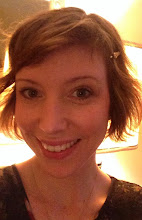From a friend come the words of Alex Chee...
A friend recently posted a comment here after I wrote about A Million Little Pieces. I feel inclined to republish what he sent. The words of the writer Alex Chee:
"There would seem to be plenty of object lessons in view for those interested in What Happens When You Lie In Nonfiction. And yet the problem continues. A reader of a memoir or a personal essay is typically interested in the struggle of the writer with the personal moral complexities of their situation. Their interest in the writer cannot survive a falsehood. Much more so in the case of journalism.
"I don't know the man, but the way I understand the story is that James Frey was someone who wrote a novel and had no success selling it, and so he called it a memoir and handed it over, and now he is in the place he is in. He admits in the Washington Post's coverage of this to trying to be 'badder' and 'tougher' than he was. Given that he was in rehab, I am in mind of how I have heard repeatedly from every recovered addict I know that addicts usually lie to cover up their self-loathing.
"It looks in one way like a fairly cynical act, to resubmit a rejected novel as a memoir. But there's also a good chance that Mr. Frey wasn't sufficiently real to himself when he resubmitted his book this way, and thus he wasn't in a place to understand that he could have an impact on people's lives: himself, his readers, his publisher and everyone who works for them. This inability to perceive oneself as real and capable of having an impact is referred to as a temporary narcissistic condition, in which someone, faced with a condition they imagine to be permanent, acts out narcissisticly. I see it in my writing students when they imagine that what they write will never be finished or published. If this was the case, then, it turned out he was wrong: it would get published. And there would be consequences.
"When my students in nonfiction ask me what they can invent, the answer I give them is that at best, they can invent the local color, at the edges---if you don't remember what someone was wearing, for example, or what was eaten. But the best nonfiction is written, to my mind, about, to quote Sarah Orne Jewett, 'That which stays a long time in the mind.' You're best off writing about the things you just can't forget, in personal essays. This would include the local color. It is a plain bad idea to invent conversations, much less events, though in both cases, a recollection of their approximate shape is allowable---everyone understands that memory is subjective. This isn't, however, a license to lie. It's also a good idea to remember that most living people reside uncomfortably in prose---they dislike being described and will take issue with it usually, even if the description is complimentary.
"What's interesting about the writing of nonfiction for me is the struggle with what is or what was---the struggle to understand the patterns that are present inside information, events, anecdotes. To lie about it is to engage in a kind of self-loathing that projects outward onto the material, and the chance to reach for any authenticity in what is there is lost, as the writer reaches instead for some mask for the material that they imagine is more interesting, more charming, than what they had. The chance to create an intelligent articulate complexity out of what might otherwise be the random chaos of your existence vanishes.
There's always a student of mine who insists the distinctions between fiction and nonfiction don't matter. I never agree. It's the end of your career and your reputation, for sure, but what's at the heart of that deathblow is the pact between a reader and a writer, a pact that fiction is an invention to fit the shape of a truth the writer guesses at, and that nonfiction is the shape of the truth the writer has found in his or her own presence, through research and memory. It doesn't matter that it's hard to work under these conditions. These are the conditions. Why should it be any different for you?"


1 Comments:
I've not yet read Frey's book, although it is on the pile, waiting to be gotten to. WHat I am reading now is Jeanette Walls' A GLASS CASTLE and I am finding it to be an excruciating process, first off, because I am finding it all very hard to swallow, and secondly, and this probably should have been my first reason, the writing is just plain awful. I am plodding through, though, because I think, or hope, the bad writing is just a device-- a little girl's voice rife with cliches-- and that there will be a maturation echoing the girl's growing up. Hoping.
Anyway-- glad to have found you and your blog. I look forward to reading more about you.
Post a Comment
<< Home